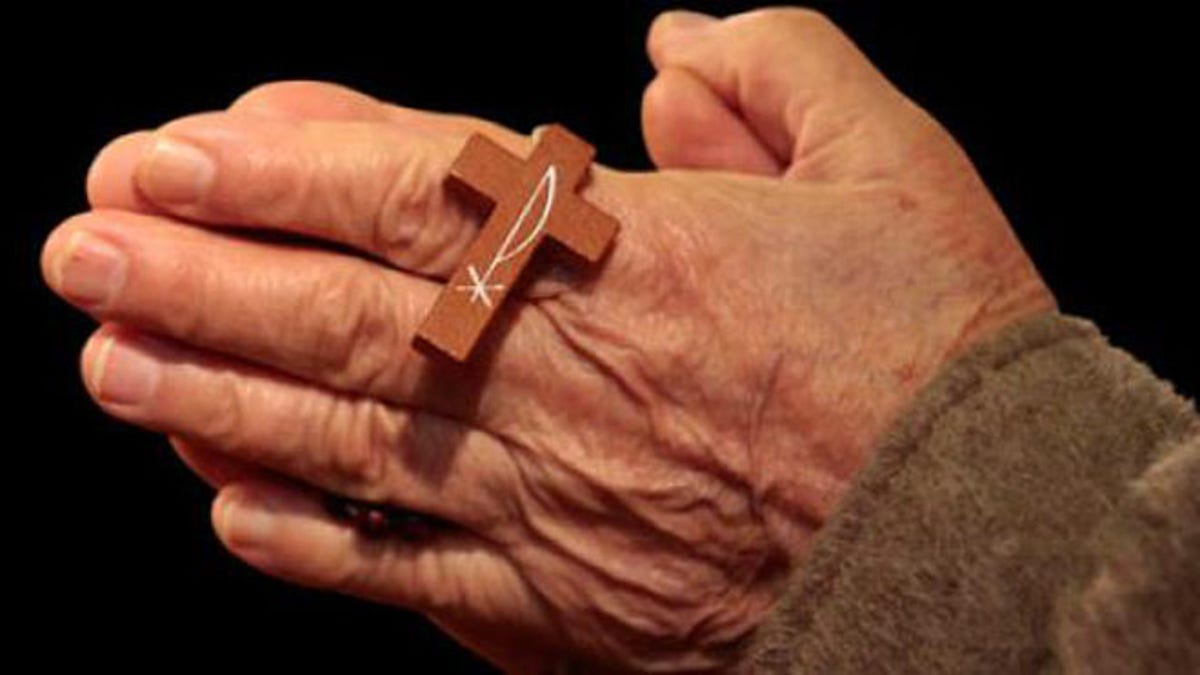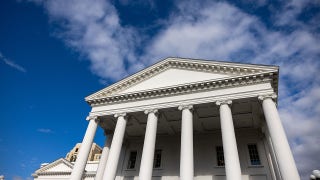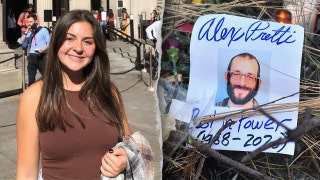
(AP)
Members of Congress are set to square off over a push to create military chaplains for people who do not believe in God.
The effort to create a chaplain for atheists and "humanists" has been building over the last several weeks. While the title might sound inherently contradictory, supporters say the point is to give atheists in the military someone who will pro-actively reach out to them and facilitate meetings.
Jason Torpy, president of the Military Association of Atheists and Free Thinkers, claims that 23 percent of those in the military ranks assert no religious preference. And he argues chaplains are not providing enough "positive outreach and support" in the way "they do for all of those beliefs that aren't their own."
As might be expected, the campaign is running into some heated criticism.
Lawmakers turned away a Democratic-sponsored amendment last month that would have created the post -- and now, Republicans are trying to formally quash the idea, with an amendment to a defense budget bill that would require military chaplains to be affiliated with a particular faith.
"When it comes to the idea of an atheist chaplain, which is an oxymoron -- it's self-contradictory -- what you're really doing is now saying that we're going to replace true chaplains with non-chaplain chaplains," said sponsor Rep. John Fleming, R-La. "It's just total nonsense, the idea of having a chaplain who is an atheist."
Rep. Doug Collins, R-Ga., who is also an Air Force chaplain, said he often dealt with atheists who were simply asking about their problems.
"What I have found is so many times people in our world today just need someone to listen," he said.
But he questioned the idea of creating a new atheist-specific position, as there are other counseling services available.
"They need to come at it differently instead of just saying we want an atheist chaplain," Collins said. "I think there's plenty of opportunities for them to talk."
The Armed Forces has counselors of all kinds, including psychologists and psychiatrists. While calling a newly created post something else -- like a counselor -- might sit fine with the military, it doesn't satisfy those who specifically want a non-faith chaplain established.
Torpy said current chaplains are not doing enough to embrace non-believers. Further, in response to the effort to require chaplains be affiliated with an endorsing faith, he said the Humanist Society is recognized as a religious organization by the one agency that matters, at least for taxes -- the IRS.
"Basically, the standard is to be recognized as a church by the Internal Revenue Service," he said.
The U.S. military could decide on its own to allow non-faith chaplains, but members of Congress are trying to both require -- and prohibit -- the post.
Fleming vowed to oppose it.
"Let's define what a chaplain is. A chaplain is a minister of the faith -- someone who believes in a deity of a spiritual life who is assigned to a secular organization," he said.
Fox News' Jim Angle contributed to this report.












































